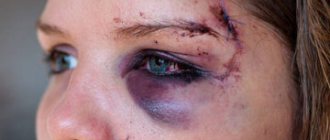How to correctly formulate objections to an appeal? And is it necessary to write objections? We will tell you everything about objections to an appeal in a civil case. Download the sample and ask questions to the lawyers.
| Note! |
| Feedback on the appeal |
The court's decision in the case is made in favor of one of the parties to the dispute. Persons participating in the case who are not satisfied with the court's decision can appeal it on appeal. When you receive an appeal from a participant in the case (and he must send a copy of it to you in advance), you should not immediately write objections. First you need to wait for a message from the court of first instance. It is this court that made the decision that will set a deadline and invite you to prepare objections. You can react with silence. You can submit your appeal. In most cases, it is enough to write an objection to the complaint.
Objections are filed if the court decision completely suits the applicant. And the other side in the appeal brings arguments that completely contradict the circumstances established during the proceedings.
Difference between review and objection
The concepts of “revocation” and “objection” in legal proceedings cannot be used as synonymous expressions within the framework of different Procedural Codes of the Russian Federation. The key differences between the definitions are as follows:
- the review contains the objections of the participants to the claim of the arbitration case;
- objection – civil case.
From the point of view of official documents filed by parties to a dispute in a lawsuit, these terms cannot be used interchangeably.
Each term refers to a separate area of law and is enshrined in distinct legal documents. The provisions regarding revocation are enshrined in Article 131 of the Code of Civil Procedure of the Russian Federation, objections to the appeal are in Article 149 of the Code of Civil Procedure of the Russian Federation.
However, as terms, these concepts can be used in related meaning within a particular context.
The review represents the participants' objections to the demands of the second party's appeal. The document in arbitration law must be submitted by the defendant without fail.
The relationship between the two concepts is established as “object-subject”; therefore, it is incorrect to call the arbitration review an objection as an official document.
In turn, an objection is formed in civil law in the format of a review, but in office work it is not a mandatory document.
The defendant has the right to express his disagreement with the appeal in writing at his own request, without court requirements.
The concept of “response to an appeal” can be used instead of “objection” in a civil case. It is incorrect to use the reverse definition.
Review requirements
The legislation of the Russian Federation does not provide for any requirements for the text of the review.
The text requires the defendant in the appellate proceedings to reflect his position. In his response, the participant petitions the court to leave the original verdict unchanged and to refuse a positive decision on the appeal. This formulation appears in almost every objection.
At the same time, when filling out a review, it is advisable to comply with the following requirements:
- You will need to prove why the participant believes that the first court verdict is lawful, and the appeal has no grounds.
- To draw up arguments, lawyers use the following scheme:
- The court's conclusions on each point of the proceedings are presented, with arguments proving the validity of the decision.
- In addition, when filling out a review, it is advisable to comply with the following formalities:
- Correct display of the name of the judicial structure and its postal address.
- Details of the persons involved in the process, displaying their full names. and their addresses.
- Signature of the objector.
- The completed response will need to be sent to each person involved in the appeal process, with copies of documents submitted to the court of initial instance attached.
Procedure for filing objections to an appeal
According to Article 389.7 of the Code of Criminal Procedure of the Russian Federation, in case of disagreement with the provisions set out in the appeal of the plaintiff or defendant, the person has the right to request a review of the decision.
The procedure for appeal in civil disputes is regulated by paragraph 2 of Article 325 of the Code of Civil Procedure of the Russian Federation.
An objection to an appeal in a civil or criminal case is referred to the court of first instance. Compared to an appeal, it is the responsibility of the applicant to inform third parties about the filing of the application.
The original document must be sent to the court, copies - to all participants in the trial. Confirmation of submission is attached to the application in the application.
Disagreement must be made in writing within the specified time frame. The documents are subsequently registered in the office and added to the case file.
It is recommended that you do not avoid opposing the submitted appeal. The step may make it possible to justify that the previously presented evidence was incorrectly assessed and a revision of the decision is necessary taking into account new arguments.
What is this
A presentation of appeal is a written claim by the prosecutor, which is a complaint against a court verdict regarding a trial that has not entered into force on legal grounds.
During the judicial investigation, the prosecutor may discover that the judge interprets the circumstances of the case, which significantly affect the sentencing, incorrectly. Or he accepts irrelevant and unfounded evidence as facts.
The prosecutor can set out all this in this document. An employee of the prosecutor's office may indicate in the complaint that the court used laws that were contrary to the case during the trial and rendering a verdict, or did not use articles that were consistent with the proceedings.
An important reason for filing this document is the judge’s incorrect interpretation of the legislation and its application to the merits of the case.
The appellate authorities must study in detail the facts that the prosecutor cites in his presentation and make a final verdict - open a case or return the complaint to the prosecutor's office.
An official of the prosecutorial authorities is obliged to respond in a timely manner and prevent errors made in legal proceedings and draw up submissions for consideration by an appellate authority. The legality and correctness of court decisions is verified within the limited time frame provided for appeal.
When studying the progress of the case, the duties of the authorized employee include noting:
- characteristic features of the legal relations of the participants in the case;
- compliance with the jurisdictional and judicial part of the process;
- lack of circumstances to terminate the case;
- involvement of all interested parties in the matter;
- correct interpretation by the court of the circumstances of the case;
- availability of necessary evidence accepted by the court;
- compliance of the court decision on the crime in question;
- application of procedural law in the proper form.
The European Court of Human Rights provides for the principle of legal certainty, which motivates prosecutors to take timely measures to eliminate judicial violations, before final decisions enter into force.
The authorized officer's complaint is based on virtually the same facts as the appeal of the other participants in the case.
Feedback on the appeal
The procedure for filing a response to the arbitration court is regulated by Article 262 of the Arbitration Procedure Code of the Russian Federation and Article 32 of the CAS of the Russian Federation.
According to the provisions set out in regulatory legal acts, when submitting a document of disagreement with an appeal in an administrative case, the applicant must:
- justify the reason and grounds for filing;
- attach evidence of sending a copy to all participants in the process;
- attach documents confirming the applicant's credentials.
The appeal to the court is sent by registered mail, copies to the participants - also by registered mail.
It is possible to write a review to the arbitration court via the Internet. Go to the official website “My Arbitrator”, log in using a convenient method and fill out the application.
In the second case, you may also need to send the document in paper form. It is recommended to clarify the information with the court that heard the case, by phone or in person.
When and to whom to submit?
An objection may be sent within the period determined by the judicial department and structure specified in the notice of sending an appeal protest in the case.
Disagreement with the appeal is sent to the court office where the original verdict was announced. They are considered by the courts of second instance. Sending an appeal statement during criminal proceedings is allowed no later than 10 days from the date of announcement of the court verdict.
For a convicted person in prison, the time for filing an appeal is counted from the moment he is given a copy of the verdict.
Lost time to submit an appeal request is allowed to be restored only if there are compelling reasons confirmed by the applicant when registering the complaint.
The legislation does not provide for actual deadlines for sending reviews, but obliges the court to establish them when notifying the persons involved in the case.
Note. The number of copies of disagreement with the appeal must be equal to the number of persons involved in the process plus a copy for the court.
Submission deadlines
According to Article 325 of the Code of Civil Procedure of the Russian Federation, the filing deadlines are set individually by the civil court of first instance. The corresponding notice is sent along with the appeal by registered mail.
The court determines the exact period that is sufficient to think over and transfer the necessary documents to the participants in the process. In most cases, the period does not exceed one month.
Similar deadlines and filing procedures are established for revocation in arbitration cases.
It is possible to submit an application after the expiration of the deadline - the court will accept the document and consider it without fail. However, such delays by default mean prolongation of the consideration of the case.
Procedural law allows participants in a trial to express disagreement directly at a court hearing.
Do I need to file an objection?
If the question arises whether it is necessary to provide a protest and whether it is worth it, the answer is yes.
When filing an objection, a person has a chance to correctly and competently interpret the central circumstances of the case and justify them. In the text of such a document, it is also worth noting that the cassation appeal, which was filed by an opponent in the proceedings, is not based on acts and legislative regulations and is considered unsubstantiated.
This point deserves great attention. Conditions often arise in which people involved in proceedings divide them differently. They also evaluate the same circumstances, which ultimately can significantly influence the final result of the case. The chance to file an objection to a cassation appeal can be regarded as a counterbalance to justice. An example of similar proceedings will help you understand all the intricacies of filing documentation.
Courts that hear complaints:
- District Court.
- The Supreme Court of a republic, territory, region, court of a federal city, autonomous region, etc.
- The appellate instance of the Supreme Court.
- Appeal Board of the Supreme Court of the Russian Federation.
Most often, the parties to the case who are not satisfied with the court decision of the first instance write a document with complex content, so that even the most unconvincing arguments sound clearly. This very often happens when analyzing difficult cases, from the point of view of legislation, for the analysis of which many months are allotted.
How to write objections to an appeal
The document can be drawn up by the client and his official representative. In the second case, the lawyer will need to attach a power of attorney confirming the ability to act on behalf of the defendant.
READ How to appeal a magistrate's decision: deadlines and sample applications
The application can be drawn up in free form, but it is important to adhere to the basic requirements for drawing up an official document.
To write a correct objection to an appeal, the application must indicate the following in turn:
- name of the court, information about the court case;
- details of the person submitting the application - full name, contacts and address;
- the essence and reasons for going to court;
- own position on the adopted resolution;
- confirm that you have read the text of the appeal;
- information confirming the arguments made;
- request to stop the trial.
When filing objections to an appeal on alimony or other grounds, take into account and objectively evaluate the previously stated arguments.
The applicant’s only task is to convince the court of the inconsistency of attempts to review the decision of the first instance. You will need to present compelling arguments and present your own approach to this appeal.
As part of the objection to an appeal in a civil case, the accused party has the right to provide additional evidence. It is recommended to make reference to new circumstances that may affect the court's decision.
When introducing new compelling evidence, it is required to objectively substantiate the reason for the absence of this information in the court of first instance. Otherwise, the new points will not be taken into account.
Neutral position
June 19, 2022 9:36 pm
The Supreme Court of the Kabardino-Balkarian Republic left unchanged the preventive measure against lawyers Diana Tsipinova and Ratmir Zhilokov
On June 19, the Judicial Collegium for Criminal Cases of the Supreme Court of the KBR considered appeals from the defense, the victim, as well as appeals from the prosecutor's office against the decisions of the Nalchik City Court of the KBR on the election of a preventive measure in the form of a ban on certain actions against the lawyers of the Administrative Office of the KBR, Diana Tsipinova and Ratmir Zhilokov. The court rejected the state prosecutor and the victim, who advocated that a preventive measure in the form of detention be chosen against the lawyers. At the same time, the court did not accept the arguments of the defense, which petitioned for a mitigation of the preventive measure. The defense pointed out, in particular, that the bans imposed on lawyers deprived them of the opportunity to practice law.
As previously reported, on May 30, the Nalchik City Court of the Kabardino-Balkarian Republic considered the investigation's petition to select a preventive measure in the form of detention for the lawyers of the Administration of the Kabardino-Balkarian Republic Ratmir Zhilokov and Diana Tsipinova, against whom criminal cases were opened on May 28 on suspicion of committing crimes under Part 1 of Art. 318 of the Criminal Code of the Russian Federation (use of violence not dangerous to life and health against a government official in connection with the performance of his official duties). The court rejected the investigation's request due to the unfoundedness of its arguments and lack of evidence, but imposed a preventive measure on the suspects in the form of a ban on certain actions.
The court ordered the lawyers to appear independently when summoned by the investigator in charge of the criminal case, with mandatory notification to the supervisory authority, and imposed bans on them from sending and receiving any postal and telegraphic items, using all types of communications and the Internet network (except for the use of telephone communications for calling an ambulance, law enforcement officers, emergency services in the event of an emergency, as well as for communicating with employees of the body monitoring the execution of prohibitions and the investigation). They are also prohibited from communicating without the permission of the investigator in charge of the criminal case with any persons, with the exception of relatives. In addition, lawyers are prohibited until July 27, without the permission of the investigator, from leaving the premises before 07:00 and staying outside of it after 22:00.
The state prosecutor and the victim insisted on placing the lawyers in a pre-trial detention center
The prosecutor and the victim Timur Nagoev filed an appeal and an appeal, respectively, in which they asked to cancel the decision of the Nalchik City Court of the Kabardino-Balkarian Republic (hereinafter referred to as the decision), which chose a preventive measure in the form of a ban on certain actions for the lawyers of the AP of the Kabardino-Balkarian Republic Diana Tsipinova and Ratmir Zhilokov, and satisfy the investigator's request to choose a preventive measure in the form of detention.
In its appeal submissions, the KBR prosecutor's office indicated that the court decisions it appealed were illegal and unfounded due to the discrepancy between the court's conclusions and the actual circumstances of the case.
As the prosecution explained, when making its decision, the court did not take into account that the acts accused of the suspect were associated with failure to comply with the legal demands of the police officers, which objectively indicates the possibility of them committing new crimes. It was also not taken into account, as the prosecutor’s office believes, that the suspects have stable friendly and professional connections with a number of witnesses in the case, due to which they can exert extra-procedural influence on them in order to obtain testimony beneficial to themselves and thereby hinder the proceedings in the case. “Taking this into account, only a preventive measure in the form of detention can ensure a proper preliminary investigation at this stage of criminal proceedings,” the documents note.
The state prosecution added that although Diana Tsipinova and Ratmir Zhilokov have a positive character, have no criminal record and have a permanent place of residence, all these circumstances are not an indisputable basis for choosing a more lenient preventive measure against them than detention.
From the appeal of the victim Timur Nagoev, in particular, it follows that lawyers can, due to their professional activities, threaten witnesses and put pressure on them to give false testimony in their favor. It also noted that the court of first instance ignored the requirements of the criminal law and, on far-fetched grounds, refused to allow the investigation to choose a preventive measure in the form of taking Tsipinova and Zhilokov into custody.
Thus, the prosecutor's office and the victim asked to cancel the court order and take the accused into custody.
The defense sought a mitigation of the preventive measure
In turn, the defense of the accused appealed the decision of the Nalchik City Court of the KBR in order to mitigate the preventive measure chosen against Diana Tsipinova and Ratmir Zhilokov.
As reported, her lawyers Madina Vorukova and Ramzan Uzuev filed an appeal against the decision of the Nalchik City Court of the KBR on choosing a preventive measure against Diana Tsipinova to the Supreme Court of the KBR.
In her appeal (available to “AG”), lawyer Madina Vorukova expressed disagreement with the above judicial act on a number of grounds. She noted that the investigation did not confirm any of the arguments why a lawyer could hide, engage in criminal activity, or threaten participants in criminal proceedings in accordance with Art. 97 Code of Criminal Procedure of the Russian Federation.
“The court chose a preventive measure against Tsipinova in the form of a ban on certain actions. At the same time, at the court hearing it was established that Tsipinova is characterized exclusively positively and has a permanent place of residence. Personal guarantees for Diana Tsipinova from her colleagues were included in the case materials. The use of a preventive measure in the form of a ban on certain actions restricts Diana Tsipinova from carrying out her professional activities and fulfilling her obligations as a lawyer to her clients. Lawyer Diana Tsipinova is handling both civil and criminal cases. An integral part of a lawyer’s professional activity is constant interaction with clients, participants in trials, the court, and government bodies,” the document notes.
The defender added that restrictive measures regarding the ban on interaction with people outside the circle of close relatives, including telephone conversations, do not allow lawyer Tsipinova to fulfill her obligations. In this regard, the lawyer asked the court of appeal to cancel the preventive measure chosen against her client.
Ratmir Zhilokov's lawyer Madina Dyshekova, in her appeal (available from "AG"), expressed categorical disagreement with the court decision she was appealing, calling it illegal and unfounded. “When choosing a preventive measure in the form of a ban on certain actions, the specific factual circumstances on the basis of which the judge made such a decision must be indicated. Such circumstances cannot be data that has not been verified during the court hearing <...> I believe that the choice of a preventive measure against a lawyer should be motivated and based on more serious and specific facts and arguments than standard formulations, since the very essence of legal practice is affected , its place in the justice system of the Russian Federation,” noted in the document.
According to the defense lawyer, the court did not in any way motivate in its decision the impossibility of applying a more lenient preventive measure against her client (bail, recognizance not to leave). Thus, the lawyer asked the Supreme Court of the Kabardino-Balkarian Republic to cancel the court decision she was appealing and choose a more lenient preventive measure against the client.
Defense objections to the appeal and the victim’s complaint
In his objections to the appeal presentation of the prosecutor's office and the complaint of the victim, the adviser to the FPA RF, lawyer of the Stavropol Regional Bar Association Nver Gasparyan, who is defending Diana Tsipinova, indicated that their arguments are not based on the requirements of the procedural law and the Plenum of the Supreme Court of the Russian Federation.
“The court found that Diana Tsipinova had no previous convictions, was positively characterized, and therefore the argument of the investigator’s petition that she could commit a new crime was not confirmed. No data confirming the validity of this argument was presented to the court, and there is no new data in the prosecutor’s appeal. The fact that Tsipinova is charged with failure to comply with the lawful demands of police officers cannot be used to justify the conclusion that she may commit a new crime. The defense is confident that Diana Tsipinova did not commit crimes, and the criminal case against her was initiated illegally. Moreover, the charged crime under Art. 318 part 1 of the Criminal Code of the Russian Federation, in accordance with Art. 15 of the Criminal Code of the Russian Federation is not serious or especially serious, requiring the most severe preventive measure in the form of detention,” the lawyer noted in his objections.
The defense lawyer called the procedural opponents' argument that the suspect has stable, friendly professional ties with a number of witnesses in the case unfounded and unconfirmed, and therefore can exert extra-procedural influence on them in order to obtain benefits for herself and thereby hinder the proceedings in the case. “Moreover, Diana Tsipinova, in principle, will not be able to influence the witnesses and the so-called victim, who are in high positions as heads of the internal affairs department, have serious powers of authority, are armed, and have hundreds of other armed police officers subordinate to them. Can a woman, Diana Tsipinova, who has no power, threaten such witnesses and victims? I’m sure not,” Nver Gasparyan noted in his objections.
According to Nver Gasparyan, the very intention of the investigator, supported by the prosecutor and the victim, to take into custody lawyer Tsipinova in the absence of signs of any crime in her actions is dangerous and can be a destabilizing factor with extremely negative consequences that go beyond the boundaries of the Kabardino-Balkarian Republic. “The defense is convinced that the criminal prosecution against my trustee is being carried out illegally, since her actual procedural status is not the accused, but the victim,” he noted.
The vice-president of the Federal Chamber of Lawyers of the Russian Federation, Mikhail Tolcheev, who took part in the consideration of the submission and complaint by the Supreme Court of the KBR, emphasized in his speech that Diana Tsipinova is not accused of criminal activity, but of the fact that during the performance of her duties as a lawyer, a professional conflict turned physical violence. “Which participant was at fault for this to happen remains to be sorted out. We believe in justice, this is our profession. We are confident that the charges against Diana will be dropped over time, and those truly guilty will be punished. But today, when there is no real interest in the investigation and no procedural grounds for restricting Tsipinova’s professional activities, the application of procedural coercive measures against her looks like persecution of a lawyer, pressure on him, like revenge for the fact that he dared to insist that he was right and demand the execution of the law.”
Decision of the Supreme Court of the KBR
Having considered the appeals of the defense, the victim, as well as appeals from the prosecutor's office against the decisions of the Nalchik City Court of the KBR on the election of a preventive measure in the form of a ban on certain actions against Diana Tsipinova and Ratmir Zhilokov, the Judicial Collegium for Criminal Cases of the Supreme Court of the KBR decided to leave these decisions unchanged , and complaints and appeals were not satisfied.
“In principle, we were against any preventive measure, and if the court chose a ban on certain actions, we objected to those prohibitions that interfere with lawyering,” Nver Gasparyan explained to the press service of the FPA RF the defense position. According to him, the ban on communication with any persons, with the exception of relatives, deprives lawyers of the opportunity to provide representation and defense in cases in which they provide qualified legal assistance, since they cannot communicate with their clients and other participants in the process.
Nver Gasparyan expressed satisfaction that the Supreme Court of the KBR refused to satisfy the complaint of the victim and the presentation of the prosecutor's office, which contained requests to place the accused in custody. At the same time, he admitted that he had an ambivalent attitude towards the decision of the Supreme Court of the KBR, since the defense was also denied.
Ratmir Zhilokov’s defender, lawyer Elizaveta Shak, told the press service of the FPA RF that she hoped that a different preventive measure would be chosen for her client. According to her, Ratmir Zhilokov’s defense petitioned for a preventive measure in the form of bail. “We asked, if the court could, to choose a different preventive measure, since this is primarily related to Zhilokov’s advocacy. His clients will suffer, and the proceedings will be suspended. Plus, he has four dependent children, and he is the only breadwinner because his wife doesn’t work,” the lawyer said. In addition, one of Zhilokov’s parents is disabled and also needs financial support, she added. However, the court did not accept the arguments of lawyer Zhilokov’s defenders, as well as the arguments of the opposite side. “The court took a neutral position,” summarized Elizaveta Shak.
* * *
Let us recall that on May 20, employees of the intermunicipal department of the Ministry of Internal Affairs of Russia “Urvansky” detained, handcuffed and forcibly brought to the department building the lawyer of the Administration of the Kabardino-Balkarian Republic Ratmir Zhilokov. According to the lawyer, he was detained while he was providing legal assistance to a trustee whose premises the police tried to conduct a search without proper court approval. Lawyers Natalya Magova, Diana Tsipinova and Lyudmila Kochesokova, who arrived at the Ministry of Internal Affairs department to protect the rights of the detainee, were not allowed to see their client. Moreover, against them, employees of the Russian Ministry of Internal Affairs “Urvansky” committed illegal acts of a violent nature that resulted in harm to health. And the police dragged lawyer Diana Tsipinova into the department building and handcuffed her, holding her there until the Ministry of Internal Affairs' own security officers arrived.
In connection with the information received by the FPA RF about the illegal detention of lawyer Ratmir Zhilokov by employees of the intermunicipal department of the Ministry of Internal Affairs of Russia "Urvansky", violent actions against him and the lawyers invited by his relatives, the President of the FPA RF Yuriy Pilipenko addressed the Minister of Internal Affairs of the Russian Federation Vladimir Kolokoltsev. In his address, Yuriy Pilipenko called this incident a gross violation of the professional rights of lawyers and the requirements of the law, and the actions of the police officers were not only unacceptable, but also required a fundamental assessment by the leadership of the Ministry of Internal Affairs.
On the night of May 28-29, lawyers of the Administration of the Kabardino-Balkarian Republic Ratmir Zhilokov and Diana Tsipinova were detained by employees of the Investigative Committee. Criminal cases have been initiated against them on suspicion of committing crimes under Part 1 of Art. 318 of the Criminal Code of the Russian Federation (use of violence not dangerous to life and health against a government official in connection with the performance of his official duties).
Commenting on the detention of lawyers to the press service of the FPA RF, Henry Reznik, vice-president of the FPA RF, chairman of the Commission of the Council of the FPA RF for the protection of the rights of lawyers, called this case egregious and said that the Federal Chamber of Lawyers of the Russian Federation is taking this case under special control.
On May 29, the Chairman of the Investigative Committee of the Russian Federation, Alexander Bastrykin, instructed the leadership of the investigative department of the Investigative Committee of the Russian Federation for the Kabardino-Balkarian Republic to thoroughly understand all the circumstances of what happened and within the framework of the investigation of the criminal case initiated against the lawyers of the Administrative Office of the Kabardino-Balkarian Republic, Ratmir Zhilokov and Diana Tsipinova, according to the law. 1 tbsp. 318 of the Criminal Code of the Russian Federation, to give a reasonable legal assessment of the actions of all participants in the conflict. The progress of the investigation was put under control by Alexander Bastrykin in the central office of the department. Information about this is posted on the official website of the RF IC.
On May 30, the Chairman of the Public Council under the Ministry of Internal Affairs of the Russian Federation, Anatoly Kucherena, said that the situation surrounding the conflict between lawyers and the police in Kabardino-Balkaria was taken under control by the Council, and the internal security service of the Ministry of Internal Affairs of the Russian Federation began an investigation into this incident. “If it turns out that police officers exceeded their authority and actually used force against lawyers, then measures will be taken against both the officers themselves and their leaders,” said Anatoly Kucherena.
Sergey Gusev Photo: kavkazr.com
SharePrint Direct link to the material:
Share










